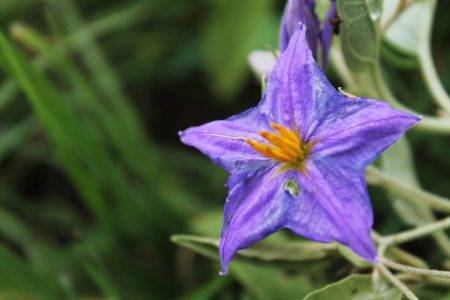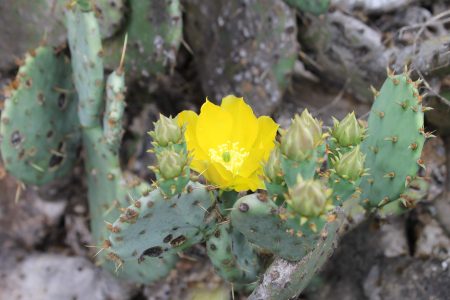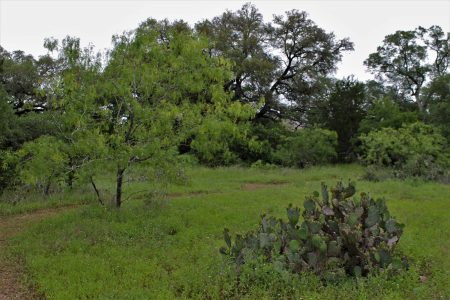By Steven McKnight
The other night, as I lay in my bed, I got the distinct feeling that I was safe. It wasn’t peacefulness or coziness, but it felt like things would be okay so long as I was home. Given the context of the pandemic, that makes logical sense. But I’ve grown more attached to this little one-bedroom than that.
I love how much light I can let in thanks to all the windows. I love that I’m on the second floor and feel separated from foot and auto traffic. I love that my bedroom is a place free from work – and free of TV. Even the parts that are less than ideal, like the kitchen, is still mine. And I love that this place is mine.
All of this is why I re-signed my lease. So while I won’t have to leave until after September 2021 at the soonest, I am guessing that leaving won’t be easy…
After all, this is where I will have survived the COVID Pandemic.
– excerpts from personal journal, June 30, 2020

My journal entry chronicles a time when I felt that the COVID-19 pandemic had been dragging on far too long. I could not fathom that I would still be experiencing masks, social distancing, and remote work for another month, let alone another year…
I was living in a large city – larger than any city I had lived in my life. I was living alone – something that I had never before done in my life. I did not know how to imagine my future – which was the scariest feeling of my life.
In the city, I expected that I could advance my career, join a community, and enjoy the outdoor experiences that the area had to offer. Before I even moved, I was already getting connected with alumni associations, political campaigns, and service organizations to make sure that I was maximizing my social activities. I made countless lists of the restaurants, coffee shops, and bars that I wanted to visit. I expected myself to enjoy the city as an on-the-go young professional who only used an apartment for sleep and storage. Reality certainly did not meet my expectations.
On March 13, 2020 – the day my employer announced a work-from-home policy for the foreseeable future – my world shrank. I rarely left my apartment more than twice a week for groceries, COVID tests, and the occasional trip to a hardware store. I refused to drive more than a few miles per week. I did not go into buildings that did not enforce mask mandates. When I had no choice but to interact with people, I meticulously contact-traced myself as a precaution. These self-imposed rules forced me to explore the neighborhood that I had previously assumed to be nondescript.
My proximity to nature was the first thing that surprised me. In a town boastful of its downtown greenbelts and riversides, I had never once taken notice of what was in my own mid-town backyard: a beautifully quiet nature preserve. Though only a few acres in area, the local parks department had masterfully created switchback trails that wound for dozens of miles. Those trails gave me daily access to deer, rabbits, lizards, butterflies, hawks, songbirds, caracaras, and a particularly skittish Bassariscus astutus – colloquially known as a “ring-tail cat.” The smell of prickly pears, bluebonnets, and wild honeysuckle never failed to soothe my anxious nerves.

The green spaces of the nature preserve allowed for socially-distanced meetings, both planned and impromptu. The lawn of the City Hall, which thoughtfully used its natural surroundings to create a meadow courtyard, hosted many picnics between friends. The City Hall campus also provided space for drive-through medical clinics, walk-up voting locations, and a farmers’ market. Even the opportunity to wave to an unfamiliar neighbor went a long way toward feeling a positive human connection.
As soon as visiting the grocery store became synonymous (in my mind) with the risk of infection, acquiring supplies became a strategic ordeal. The nearby farmers’ market became a staple for me since it was both outdoors and within walking distance. Between trips to the market, a home-grown start-up provided delivery services for blemished products from nearby farmers to support the local economy.
The features of this community certainly contributed to the well-being of all members. We could receive medical care. We could access fresh produce. We could walk among wildlife and breathe fresh air. We could connect with neighbors without ever having to keep in touch. Personally, I was also able to use my environment to ground myself. Ironically, my real-life surroundings felt like an escape from my news-oriented reality. Every second that I was hiking the nature preserve or just walking through the neighborhood was a second that I was not fretting about death toll numbers or brutal murder or insurrection or Greek-alphabet hurricane or… anything. I was free to not fret about anything, if only for a moment.
Today, I recognize the immense privilege that I had to live in that place for two years. I was able to take refuge, not only in my apartment but my neighborhood. It was a well-designed space that was built to sustain people and nature in harmony. That environment quite literally sustained me during the most trying time of my life. I now feel compelled to bring that type of sustainability to other communities through collaboration, participation, and liberation. I was right back then; leaving was extremely difficult. But I do not regret leaving. I am inspired by the notion that sustainable spaces are possible for all people all over the world. I am eager to help build that future.





